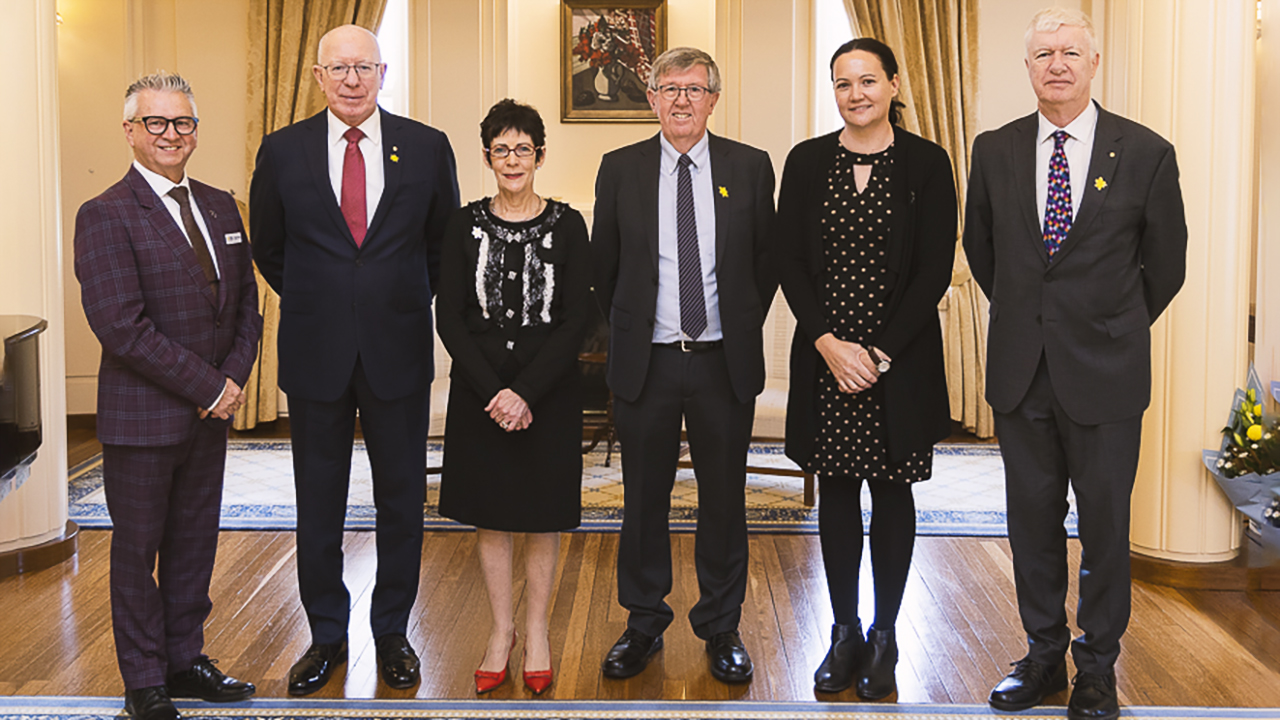Local cancer research set to improve treatment options under Cancer Council ACT grants program

Cancer Council ACT has today announced that two significant cancer research projects being undertaken in Canberra will receive grant funding as part of its annual Research Grant program.
To make this important announcement, Their Excellencies, General the Honourable David Hurley AC DSC (Retd) Governor–General of the Commonwealth of Australia and Mrs Linda Hurley hosted a special event at Government House on the morning of Thursday 18 May 2023 for Cancer Council ACT, as part of Australia’s Biggest Morning Tea.
The Research Grant Program was established to further world-class cancer research in the ACT, and awards two grants each year of $75,000. This year grants have been awarded to Emeritus Professor Philip Board and Dr Olga Zaytseva, both from the John Curtin School of Medical Research at The Australian National University.
Professor Board’s project will determine whether the GSTO1 inhibitors they have developed can slow or block the growth of different cancers, which may provide a new approach to the treatment of drug-resistant cancers.

The project, Testing GSTO1 inhibitors as anti-cancer therapeutics, is led by Emeritus Professor Philip Board (R) and Dr Padmaja Tummala.
Professor Board stated, “We are very excited to be able to test the capacity of GSTO1 inhibitors to prevent the survival of breast cancer stem cells which are often the cause of a relapse after chemotherapy. This research would not be possible without the generous support of the Cancer Council ACT.”
Dr Zaytseva’s studies aim to develop tailored therapies that can target genetic mutations in brain cancer subtypes. Through better understanding of how certain mutations drive disease in sophisticated “mini-brain” models, and testing drugs on the tumours that carry these mutations, her research will identify therapeutics able to kill cancer cells while leaving healthy cells intact. Using treatments based on patient tumour type provides the best chance of increasing survival rates.

Dr Olga Zaytseva (R)and Professor Leonie Quinn will led a project that aims to identify drugs that can specifically target certain human brain cancer mutations using human "brain organoids" or "mini-brain" models.
Dr Zaytseva stated, “As an early career researcher the Cancer Council ACT Research Grant provides significant support, not only toward my experiments but also helps me to build my scientific profile and advancing my career.”
Cancer Council ACT Research Committee Chair and Board member Dr Paul Craft said, “A crucial part of reducing the impact of cancer is to support research into cancer.
This new knowledge enhances cancer prevention and treatment, and we are proud of the excellent cancer research conducted in the ACT.”
Through the generosity of supporters, the Cancer Council ACT Research Grant Program has been able to contribute over $2 million to Canberra-based research projects over the past 20 years.
Australia’s Biggest Morning Tea is celebrating 30 years and is officially held on the 25th May, although people are encouraged to host a Biggest Morning Tea with their friends, at their workplace or in their community anytime throughout May and June.
Funds raised by hosts in the ACT go directly to the work Cancer Council ACT does to support those impacted by cancer in Canberra. This includes the ability to provide annual grant funding for vital cancer research.
This article first appeared on Cancer Council ACT.
